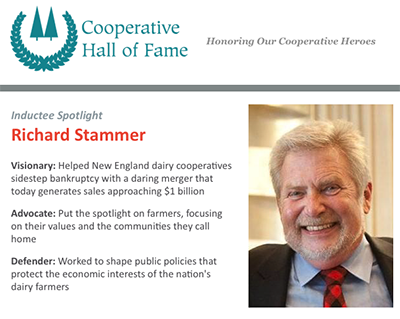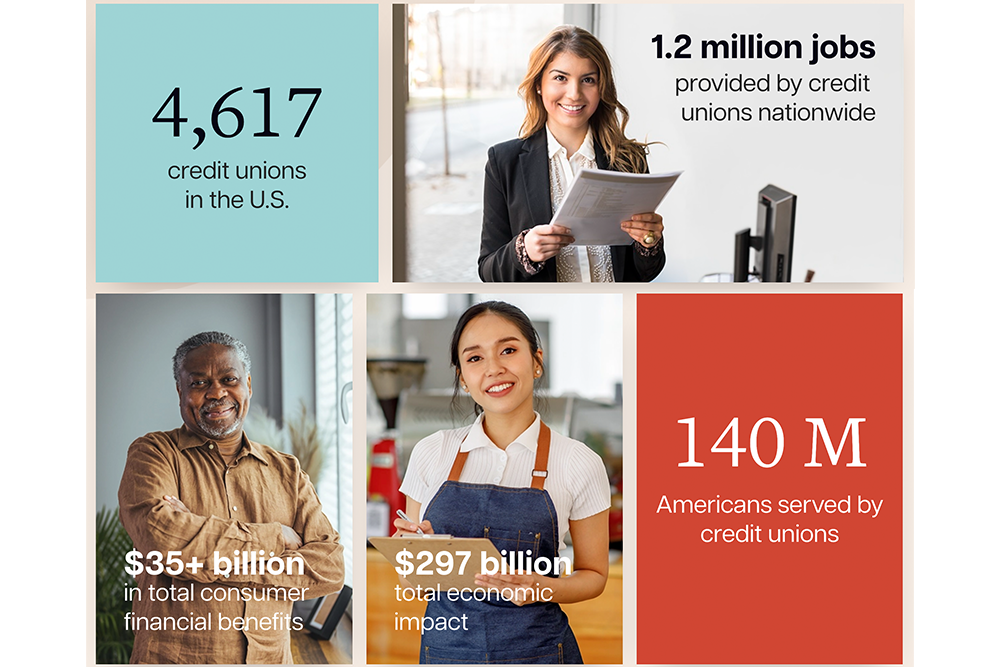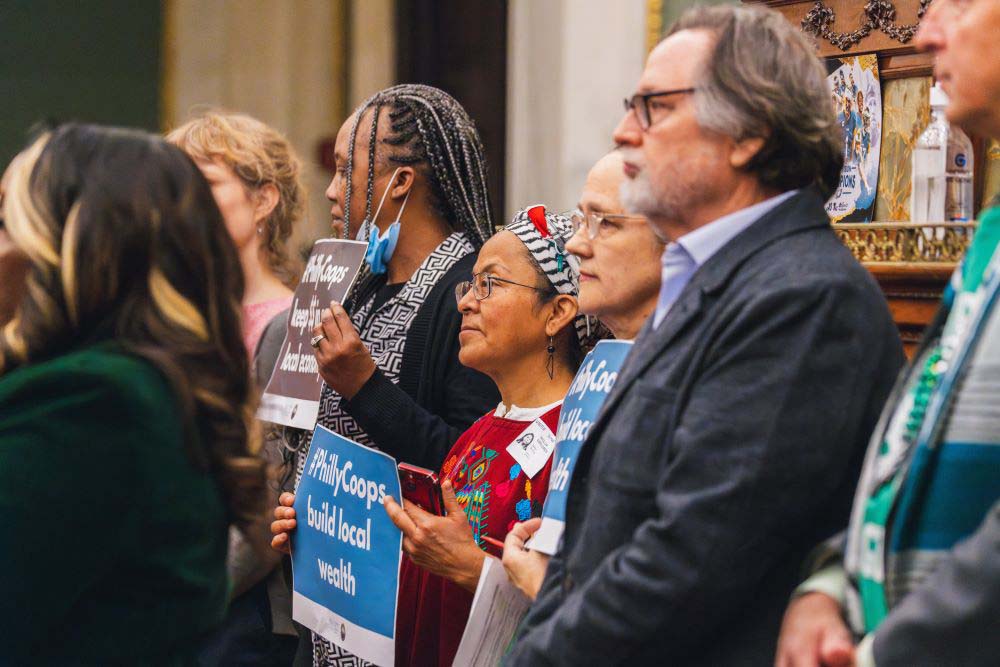
A leader in the U.S. dairy industry for half a century, Richard Stammer helped New England dairy cooperatives sidestep bankruptcy with a daring merger that today generates sales approaching $1 billion, and worked to shape public policies to protect the economic interests of the nation’s diary farmers.
Richard began his career as a tenured professor of Agricultural Economics at Rutgers University, but left to put theory into practice at a pivotal moment in the dairy industry. The 1980s and 90s were tough times for the milk industry in New England; family farms were shuttering and dairy co-ops were collapsing. With no value-added products, Agri-Mark was hit hard. At first, it seemed like Cabot Creamery would weather the downturn; it was expanding distribution of its branded butter and cheeses. But unstable milk prices persisted, falling 30 percent by the summer of 1991. By 1992, Cabot, too, was on the verge of bankruptcy.
What if Agri-Mark, a cooperative of dairy farmers, merged with Cabot, a creamery co-op with a full line of consumer branded dairy products? Richard, then Vice President and COO of Agri-Mark, effectively made the case for the bold—and fiercely debated—farm-to-market merger. By the mid-90s, the combined co-op had already realized $90 million in sales.
In 1994, Richard took on the additional role of CEO at Cabot, where his foresight was again rewarded. Under his leadership, Cabot commanded the market for aged cheddars, boosting sales and winning awards, while also positioning itself for what would be the next artisan cheese trend: flavored cheddars. Richard also helped Cabot solve a persistent waste disposal problem by turning a virtually useless byproduct of cheese processing—whey—into milk protein concentrate, now used to boost the protein content of everything from infant formula to sports nutrition products.
Richard’s contributions to the dairy industry not only made it more economically viable, but also more sustainable. He helped tell the story of the economic, social, and environmental contributions of dairy farms long before corporate sustainability was a buzzword. Cabot became the first dairy co-op in the U.S. to earn the rigorous third-party verification of B-Corp certification by focusing on its triple bottom line. In 2014, Cabot received the U.S. Dairy Sustainability Award for Outstanding Dairy Processing and Manufacturing Sustainability.
While at Cabot, Richard marketed the co-op difference. He put the spotlight on the farmers who owned the brand, focusing on their values and the communities they called home. An early adopter of the .coop domain, Richard helped make meaningful co-op identity a core part of consumer branding.
Under Richard’s leadership, Cabot developed programs to celebrate and reward its member-volunteers and recognize the fundamental role of cooperatives in strengthening communities. A series of Cabot Community Tours along the East Coast was just one effort. Traveling along with the tour is Cabot’s Gratitude Grill, a full-service traveling kitchen where Cabot chefs cook meals for volunteers.
In 2011, Richard assumed yet another leadership role: CEO of Agri-Mark. Today, he continues to serve the co-op as Senior Executive Vice President on a part-time basis, playing a critical role in dairy industry lawsuits involving Agri-Mark and National Milk Producers Federation.


